Economy
Freeland stays in wrong city for climate conference, drops over $3,000 on luxury chauffeur service
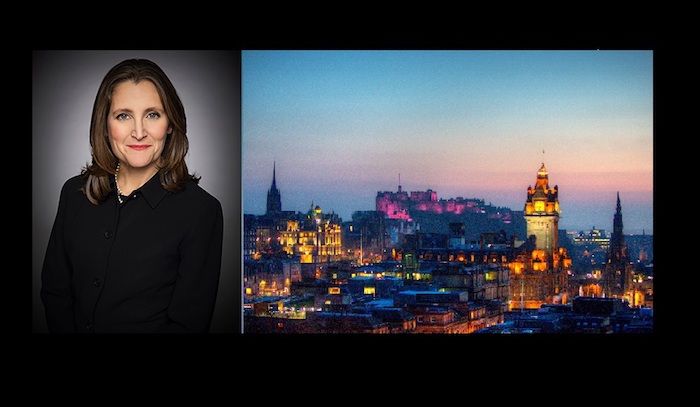
This article from the Canadian Taxpayers Federation
By James Wood of the Canadian Taxpayers Federation
Finance Minister Chrystia Freeland stayed in the wrong city during the latest climate conference in Scotland, according to documents obtained by the Canadian Taxpayers Federation.
“Did Freeland forget to check Google Maps?” asked Franco Terrazzano, Federal Director of the CTF. “Taxpayers shouldn’t be billed thousands of dollars extra because a minister stays in Edinburgh when the actual conference is in Glasgow.”
Freeland travelled to Scotland for the United Nations Conference on Climate Change, better known as COP26, with Deputy Minister of Finance Michael Sabia, then-policy director Leslie Church, and Bronwen Jervis, a senior communications advisor.
While the conference was held in Glasgow, all four stayed 86 km away in Edinburgh during the two days Freeland was attending the gathering. The finance department paid over $3,000 for St Andrews Chauffeurs, a luxury executive car service, to shuttle Freeland, Sabia, Church and Jervis between the two cities.
According to Google Maps, it takes about 90 minutes to drive from Edinburgh to Glasgow.
About 121 trains run between Glasgow and Edinburgh per day, including multiple direct trains. Train passengers are able to make the journey in 49 minutes.
While prices may have varied at the time of COP26, Freeland’s group could have paid roughly $50 each, per day and round trip, for first class seats on direct trains going back and forth between the two cities, adding up to around $400.
“Here’s a crazy idea: the next time Freeland wants to attend an international conference she should try staying in the same city instead of billing taxpayers for a luxury chauffeur service,” said Terrazzano. “And why did the minister and her staff drive when they could have taken trains that were cheaper and faster?”
The finance department paid for rooms at Edinburgh’s Hotel Indigo, a four-star “boutique hotel” located in the downtown core of the Scottish capital. The rooms for Sabia, Church, and Jervis each cost between $650 to $680 per night, while Freeland’s room was over $740 a night.
Freeland’s flight to Edinburgh cost $11,573 and Sabia’s flight cost $10,640. Church paid $4,215 and Jervis paid $3,235.
The combined cost from all four travellers was just under $42,000 for a three-day trip.
The finance department didn’t explain why the four delegates had stayed in Edinburgh despite the conference being in Glasgow.
It also did not explain why a private chauffeur service was paid to shuttle the delegates, or provide any explanation on why train tickets were not purchased instead. Questions about the flight costs were also unanswered.
Canada’s 276-person delegation was the largest one sent by a G7 nation to the COP26 conference, including the United Kingdom, which hosted the event and sent 227 delegates.
Full costs for 2021’s conference have been listed as over $1 million, though a full total has not been published. The federal government spent over $680,000 for a previous conference in 2019.
“It’s extremely disappointing that the finance minister is taking taxpayers for a ride like this,” said Terrazzano. “Freeland is supposed to be protecting the public purse, not wasting tax dollars on luxury shuttles because she didn’t stay in the same city as the conference.”
Photo of Edinburgh in main image originally by Chris Fleming from UK – Evening view across Carlton Hill towards the Caste
Economy
Canadians experiencing second-longest and third steepest decline in living standards in last 40 years

From the Fraser Institute
From 2019 to 2023, Canadian living standards declined—and as of the end of 2023, the decline had not yet ended, finds a new study published today by the Fraser Institute, an independent, non-partisan Canadian public policy think-tank.
“Despite claims to the contrary, living standards are declining in Canada,” said Grady Munro, policy analyst at the Fraser Institute and co-author of Changes in Per-Person GDP (Income): 1985 to 2023.
Specifically, from April 2019 to the end of 2023, inflation-adjusted per-person GDP, a broad measure of living standards, declined from $59,905 to $58,111 or by 3.0 per cent. This decline is exceeded only by the decline in 1989 to 1992 (-5.3 per cent) and 2008 to 2009 (-5.2 per cent). In other words, it’s the third-steepest decline in 40 years.
Moreover, the latest decline (which comprises 18 fiscal quarters) is already the second-longest in the last 40 years, surpassed only by the decline from 1989 to 1994 (which lasted 21 quarters). And if not stabilized in 2024, this decline could be the steepest and longest in four decades.
“The severity of the decline in living standards should be a wake-up call for policymakers across Canada to immediately enact fundamental policy reforms to help spur economic growth and productivity,” said Jason Clemens, study co-author and executive vice-president at the Fraser Institute.
- Real GDP per person is a broad measure of incomes (and consequently living standards). This paper analyzes changes in quarterly per-person GDP, adjusted for inflation from 1985 through to the end of 2023, the most recent data available at the time of writing.
- The study assesses the length (number of quarters) as well the percentage decline and the length of time required to recover the income lost during the decline.
- Over the period covered (1985 to 2023), Canada experienced nine periods of decline and recovery in real GDP per person.
- Of those nine periods, three (Q2 1989 to Q3 1994, Q3 2008 to Q4 2011, and Q2 2019 to Q2 2022) were most severe when comparing the length and depth of the declines along with number of quarters required for real GDP per person to recover.
- The experience following Q2 2019 is unlike any decline and recovery since 1985 because, though per person GDP recovered for one quarter in Q2 2022, it immediately began declining again and by Q4 2023 remains below the level in Q2 2019.
- This lack of meaningful recovery suggests that since mid-2019, Canada has experienced one of the longest and deepest declines in real GDP per person since 1985, exceeded only by the decline and recovery from Q2 1989 to Q3 1994.
- If per-capita GDP does not recover in 2024, this period may be the longest and largest decline in per-person GDP over the last four decades.
 Read the Full Report
Read the Full Report
Authors:
Economy
Feds spend $3 million to fly 182 politicians and bureaucrats to climate conference
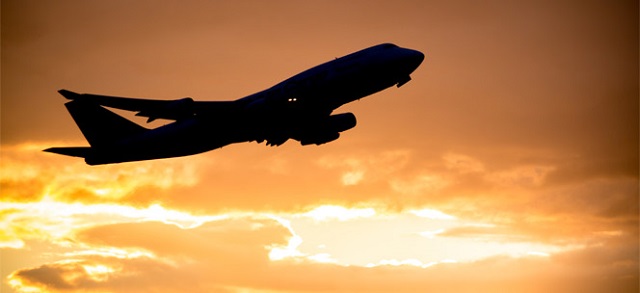
From the Canadian Taxpayers Federation
Author: Ryan Thorpe
Feds trip to COP28 in Dubai cost $3 million
The cost for Canada to send hundreds of people to COP28 in Dubai has doubled, rising to nearly $3 million, according to government records obtained by the Canadian Taxpayers Federation.
Included in those costs is $1.3 million the federal government dished out to host a “Canada Pavilion” at the summit, which featured a rapper performing a song on “climate disinformation,” while giving a shoutout to Environment Minister Steven Guilbeault.
“Nothing screams fighting climate change like flying around the world burning through jet fuel and millions of tax dollars,” said Franco Terrazzano, CTF Federal Director. “Here’s a crazy idea: maybe the feds don’t need to spend $3 million flying 182 politicians and bureaucrats to Dubai.”
The federal government paid for at least 182 people to go to COP28, held from Nov. 30 to Dec. 12, 2023, in Dubai, United Arab Emirates.
A previous report from the National Post pegged the cost for Canada’s delegation at $1.4 million.
But the bill now sits at $2,954,188, including $825,466 for transportation, $472,570 for accommodations and $295,455 for meals and incidentals, according to the records.
The records indicate the cost could rise even higher, as certain invoices and travel claims “have yet to be processed.”
Costs included $1.3 million for a “Canada Pavilion” to “showcase the breadth of Canadian climate leadership.”
At the Canada Pavilion, a Canadian rapper known as Baba Brinkman – the son of Liberal MP Joyce Murray – performed a rap on “climate disinformation.”
“Climate disinformation, get that immunization, the vaccine for bad meme infiltration,” Brinkman rapped. “Climate misinformation, it leads to polarization, which leads to radical conspiracy ideation.”
Environment Minister Steven Guilbeault also received a shoutout during Brinkman’s rap.
“Really? Hosting a rapper half-way around the world to drop rhymes at a government podium will help the environment?” Terrazzano said.
The records were released in response to an order paper question from Conservative MP Dan Mazier (Dauphin-Swan River-Neepawa).
Most of the hotel expenses came from the Dubai Marriott and the Premier Inn at the Dubai Investment Park, with rooms coming in between $150 and $400 per night.
The most expensive digs was a $816-per-night suite at the Pullman Dubai Jumeriah Lakes Towers, a “five-star hotel offering upscale accommodations.”
The Canadian delegation also handed out $650 worth of gifts during the trip.
-

 Brownstone Institute3 hours ago
Brownstone Institute3 hours agoMedical Elites’ Disgrace Over Ivermectin
-
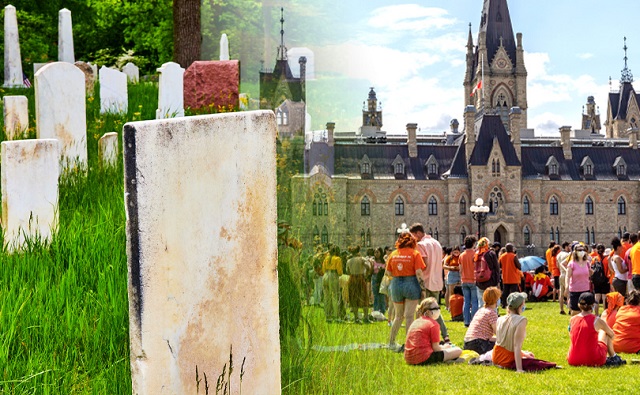
 National46 mins ago
National46 mins agoDespite claims of 215 ‘unmarked graves,’ no bodies have been found at Canadian residential school
-
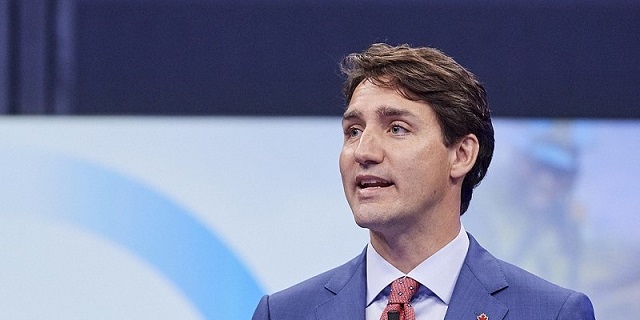
 Automotive8 hours ago
Automotive8 hours agoElectric vehicle mandates mean misery all around
-
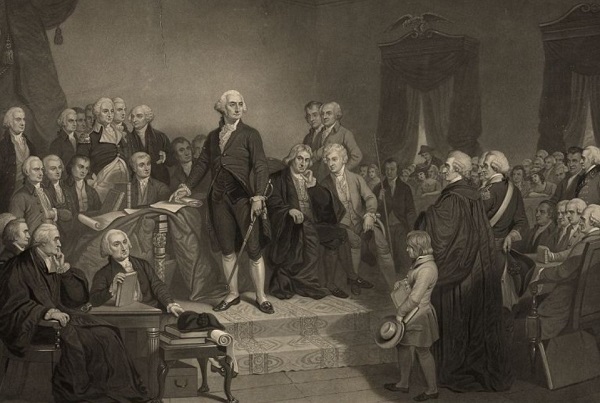
 Opinion7 hours ago
Opinion7 hours agoThe American Experiment Has Gone Down In Flames
-

 COVID-192 days ago
COVID-192 days agoCOVID Lab Leak: Over four later, EcoHealth Alliance funding is finally suspended
-

 Community2 days ago
Community2 days agoThe Grand Opening is TODAY!
-

 COVID-192 days ago
COVID-192 days agoNIH Quietly Altered Definition For Gain-Of-Function Research On Its Website, Former Fauci Aide Confirms
-
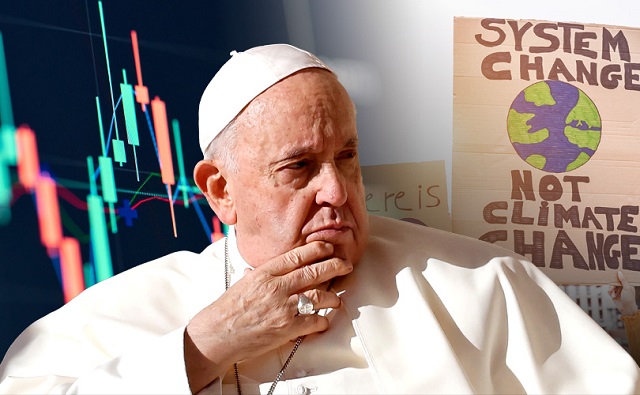
 Energy2 days ago
Energy2 days agoPope Francis calls for ‘global financial charter’ at Vatican climate change conference






